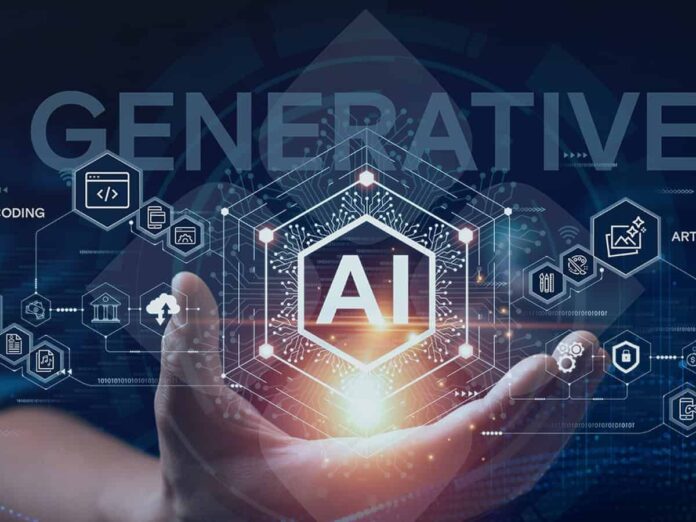Generative artificial intelligence (AI) has gone from being a futuristic idea to one of the most disruptive forces influencing modern global business in a matter of years. Businesses in all sectors, from start-ups to multinational conglomerates, are vying to incorporate AI and data-driven technologies into their operations. As a result, business innovation has entered a new era where decision-making, efficiency, and personalization are all at previously unheard-of heights.
In contrast to conventional algorithms, generative AI produces new designs, content, and solutions in addition to analyzing data that already exists. It can create product prototypes, write articles, plan marketing campaigns, and even write code using deep learning and large language models. Significant time and cost savings as well as the capacity to scale creativity are what this means for businesses. For example, instead of waiting days to create customized ad copy, blog posts, or email campaigns, marketing teams now use AI tools like ChatGPT, Jasper, and Copy.ai. In a similar vein, before building a single prototype, product designers use AI to simulate and improve their designs.
Beyond generative AI, automation and data analytics are now the cornerstones of contemporary corporate strategy. Businesses can now comprehend customer behavior in real time thanks to the massive amount of data being generated by social media, IoT devices, and customer interactions. Businesses can manage supply chains, predict trends, and improve pricing strategies with the aid of tools like predictive analytics. For instance, Amazon has a competitive advantage in the global market thanks to its use of sophisticated machine learning to forecast product demand and streamline logistics. Financial institutions are also using AI to make their services more secure and customer-focused by detecting fraud, evaluating risk, and providing tailored financial advice.
Beyond efficiency, though, the combination of AI and data-driven systems is radically altering whole business models. Agile, data-first decision-making cultures are replacing traditional business hierarchies that depended on experience and intuition. Businesses are moving toward “AI-centric” models, in which machine intelligence and human creativity coexist. Pharmaceutical companies use AI to speed up drug discovery, cutting years off the research timeline, while healthcare providers use AI-powered systems to help physicians diagnose illnesses more quickly and accurately. Data-driven personalization has become commonplace in retail, with platforms suggesting goods based on the preferences and behavior of individual customers.
The democratization of business capabilities is among the most obvious changes. Once lacking access to sophisticated R&D or large-scale analytics, small and medium-sized businesses (SMEs) now use reasonably priced AI tools to compete on a global scale. Startups now have access to data insights and processing power that were previously reserved for billion-dollar companies thanks to cloud-based AI services from firms like Google, Microsoft, and OpenAI. Global innovation and entrepreneurship are being encouraged by this change, which is enabling emerging markets to advance beyond conventional stages of development, especially in Africa and Southeast Asia.
But there are drawbacks to this change as well. There are increasing worries about job displacement, ethical AI use, and data privacy. Many industries are experiencing workforce transitions that call for reskilling and adaptation as AI automates repetitive tasks. Additionally, businesses need to make sure AI systems are transparent and equitable in their decision-making, particularly when it comes to delicate areas like healthcare, credit scoring, and hiring. Stronger AI regulations are currently being pushed for by governments and international organizations in an effort to safeguard consumers and promote innovation.
In the future, the combination of automation, big data, and artificial intelligence will continue to transform how companies function, compete, and provide value. Businesses that can blend human ingenuity with mechanical accuracy will be successful in the future; they should use AI as a strategic partner rather than merely a tool. The distinction between human and machine collaboration will become increasingly more hazy as generative AI develops, opening the door for more intelligent, quick, and flexible multinational corporations.

